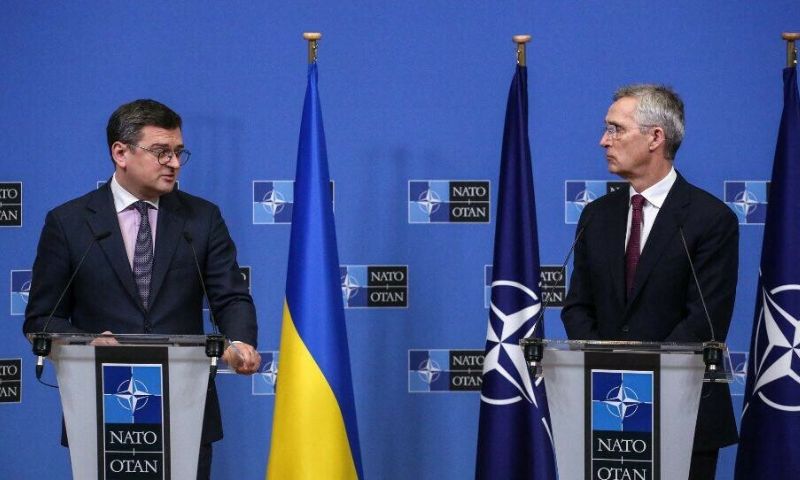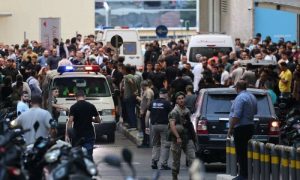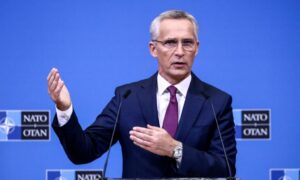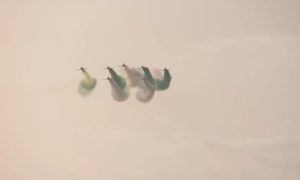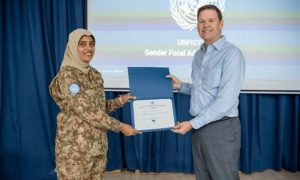OSLO, Norway: Foreign ministers of NATO countries Thursday debated providing security guarantees to Ukraine after its war with Russia ends, as the organisation looks to narrow divisions over Kyiv’s bid to join the bloc.
The ministers met in Oslo. Russia’s invasion of Ukraine in February 2022 has galvanised the Western military alliance set up almost 75 years ago to face off against the Soviet Union. But with just over five weeks to a summit of NATO leaders in Lithuania’s capital Vilnius, there are divisions on the key issues.
The biggest among them is Kyiv’s push to join NATO, an organisation that requires consensus to make decisions. President Zelensky, backed by NATO countries in eastern Europe, is calling for a “clear message” at the July summit that Kyiv will join once the war with Russia ends.
But diplomats from NATO countries say the bloc’s dominant military power, the United States, is reluctant to go further than a 2008 vow that Ukraine would one day become a member.
Joining NATO bloc would mean Ukraine would be covered by the alliance’s Article 5 collective defence clause that obliges all the allies to help defend it if attacked.
One option being weighed is major powers offering Ukraine bilateral security assurances in the years before it becomes a full NATO member. “We need to ensure that history doesn’t repeat itself, that this pattern of Russian aggression against Ukraine really stops,” Jens Stoltenberg, NATO Secretary General told the meeting in Oslo. “Therefore we need to have in place frameworks to provide guarantees for Ukrainian security after the end of the war.”
Emmanuel Macron, French President, on Wednesday backed “tangible and credible security guarantees” for Ukraine. But there are major questions over how any commitments to Kyiv would work. “We must give strong defence guarantees to Ukraine,” said Estonia’s Foreign Minister Margus Tsahkna.
“This is a clear message to (President Vladimir) Putin and to Russia. They know and understand only the clear language.”
On a practical level, Stoltenberg is pushing for a decade-long programme worth 500 million euros per year to help Ukraine’s military switch to Western standards. That would be on top of the tens of billions of dollars in arms that allies have already sent. “The most urgent and important task now is to ensure that Ukraine prevails,” Stoltenberg said.
New NATO head?
Another hot potato for the Vilnius moot is a new pledge to boost NATO’s current target for each member to spend at least two percent of the gross domestic product (GDP) on defence. Only seven members met that figure last year, and the allies agree on the need to make the two-percent goal “a floor, not a ceiling”.
But Eastern European members, which have already hiked defence spending beyond that, are disappointed by the lack of ambition shown by some allies. On the other side, members such as Luxembourg and Canada are silent to make any greater ambition too concrete.
One issue also being discussed by the foreign ministers on the sidelines of the gathering is finding a successor to Stoltenberg as NATO secretary general. The former Norwegian premier has held the post since 2014. In 2022, following Russia’s invasion of Ukraine, his tenure was extended to September 2023.
Danish Prime Minister Mette Frederiksen has emerged as a possible frontrunner and is heading to Washington next week for a meeting with President Joe Biden. She has bolstered her case by promising to triple Denmark’s defence budget over the next decade.
Other names being mentioned are Romania’s President Klaus Iohannis, Estonian Prime Minister Kaja Kallas and British Defence Secretary Ben Wallace. Diplomats say that if no clear choice emerges then Stoltenberg — who says he won’t put himself forward — may be asked to stay on still longer, into next year. — AFP









